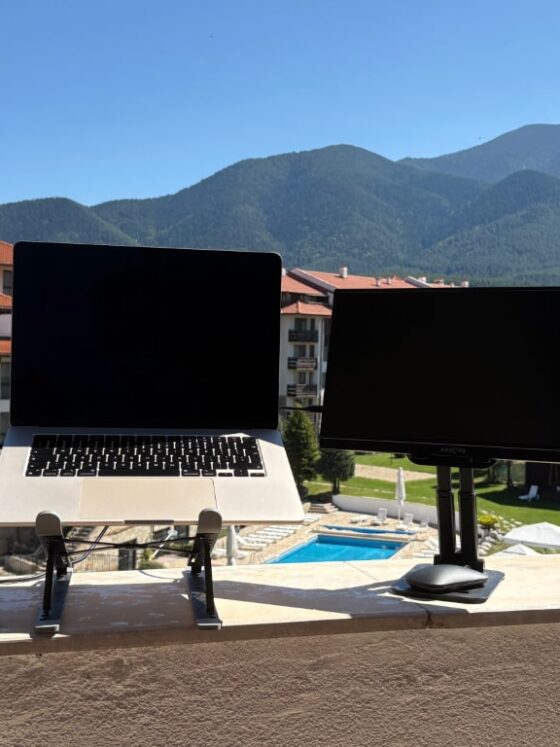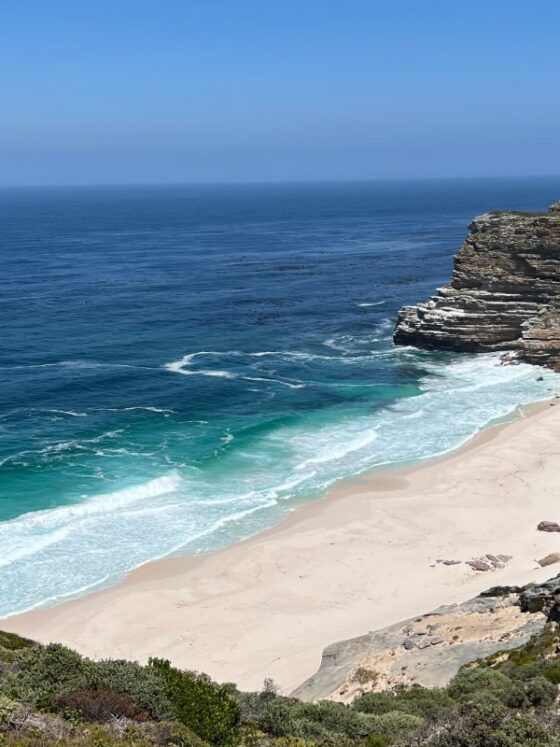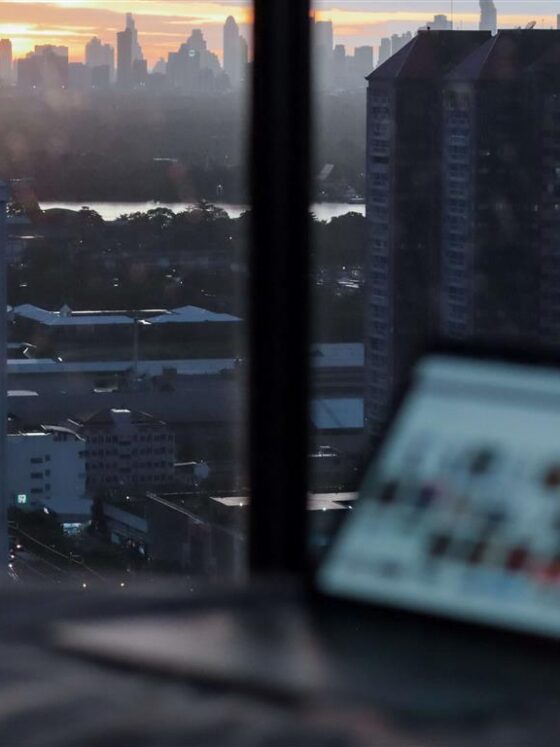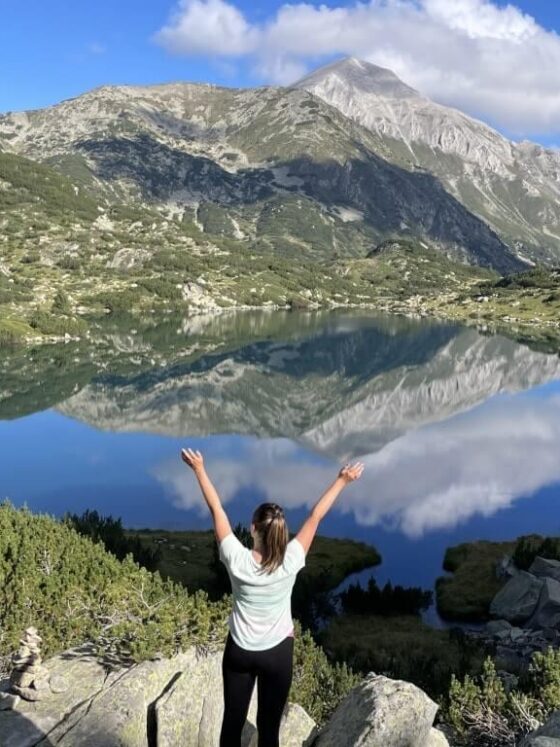There’s a lot of content out there that tells you how amazing being a digital nomad is. And don’t get me wrong, it really can be amazing. Off the top of my head – wall to wall sunshine, walks along the beach, working from idyllic cafes, experiencing and learning new things – every day.
But it’s not always like that. If you’re planning on ditching the 9-5 in favour of freedom abroad, there are a few things I’d like to have known before I set off. There’s so much to think about that, as a newbie, it can feel overwhelming.
If you, like me, are getting most of your information or inspiration from Instagram, then you’re likely being drawn in by videos of laptops on beaches, or maybe the new ‘Lazy girl’ job videos I’ve seen more recently. In reality, working on the beach just isn’t that comfortable,e and you’ll break your back hunched over most beachside cafes, let alone find decent wifi.
So, what is the reality? You’re in the right place.
If you’re thinking about taking the leap, here are 10 things I really wish I’d known before becoming a digital nomad – from the practical admin stuff to the comforting truths that make the journey so much easier.
1. I wish I’d known… where on earth to start
When I first dreamed of the digital nomad life, I had no clue where to begin. All I knew was, there are people out there doing this – so why can’t you? Which is comforting, but not very practical!
One of the biggest myths is that you need to plan every little detail before you start. The truth is, it’s all about taking it step by step.
If you want to read more about my personal experience, you can read my ‘How’ and ‘Why’ I became a digital nomad blog posts.
Money
You will need some savings to get you started. This will depend on multiple factors, but you usually have to pay for your rent, or at least part of it, upfront. If you won’t be earning money immediately, you will need some cash to support you initially. You’ll need to pay for your transport (flights are the big one!) upfront too, so again, you’ll need some cash for that too.
Aaron and I started with around £8,000 each. That’s quite a big sum, but initially we were planning on doing a year of backpacking (and not working at all!), which is why that’s a bigger sum. However, I’d recommend having a minimum of £5,000 (if you’re leaving without any clients/income).
Work
My advice is to get the wheels in motion before you leave. Discuss with your boss to see if there is any scope for taking your current role abroad. Set up your UpWork and/or Fiverr profiles.
Build in some time to apply for jobs online (and not earn) and remember that there will be a delay in getting paid once you land a contract, so make sure you factor that in. Sounds obvious, but often forgotten!
A little side story…
When I was in Cape Town, we met a girl who had managed to get her employer to sign off on one month of remote working. So she was out in Cape Town living it up, seeing what she made of it all. If you can swing it, that’s a good idea to test the waters. Another idea is to take some time off work and pretend like you’re doing it. Visit a coworking space, go to the gym, set up your profiles, and try and get work done. Go work in a cafe, even if it is on one of your own projects. Get a feel for it before you commit. But if you love travelling, I imagine you’ll love this lifestyle too.
Living
In our first destination, we got a hotel for a few days before moving into our apartment. It was so overwhelming, it was nice to take the admin out of everything while we figured out the basics (where is the supermarket? Where can we work? Where is the gym? What will I cook tonight?). It’s something I’d recommend for your first destination – plus you’ll be so giddy that this is life now, it’s fun to start with a little mini holiday.
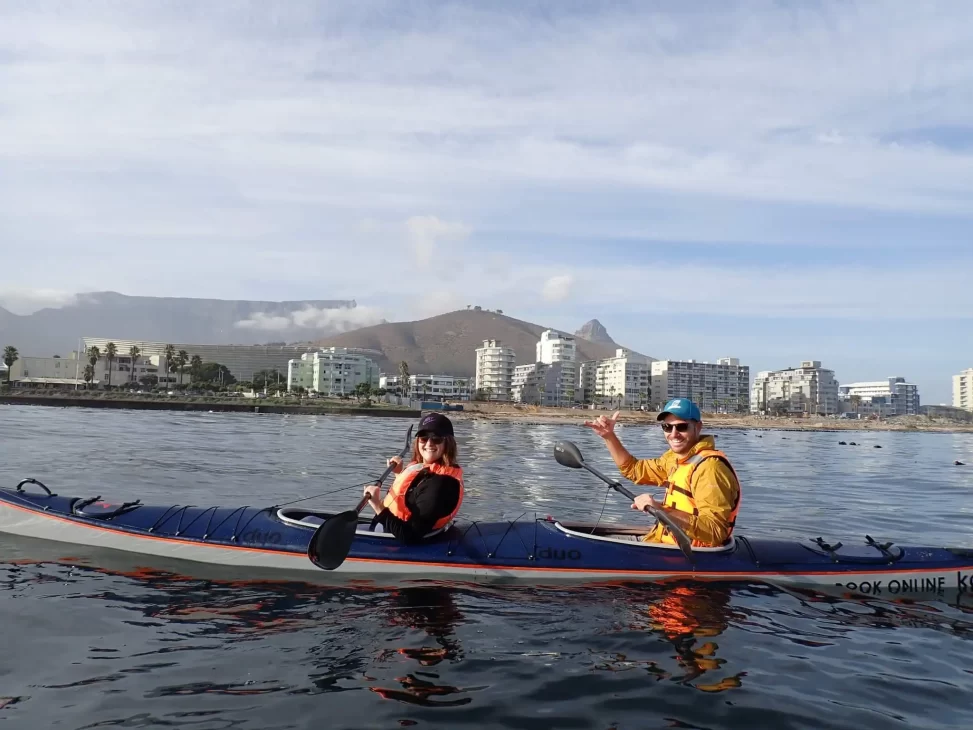
Are you a new or aspiring digital nomad? You might find these interesting…
- My favourite digital nomad destinations (as of June 2025…)
- What is coworking? And why it will change your digital nomad life!
- How I quit my 9-5 and became a digital nomad
- Why I became a digital nomad in the first place (in 2021!)
2. I wish I’d known about…becoming self-employed
Becoming a digital nomad often means becoming self-employed. Contrary to what Instagram will tell you, this isn’t (just) about working with amazing views and your toes in the sand, it’s about finding work that you enjoy and suits the life you want.
Finding Work (and learning to pivot)
The first thing I wish I’d known? If you’re starting from scratch, as in, leaving your 9-5 behind to try something totally new, it’s going to take time to figure things out.
I went from being a lawyer to working as a social media assistant. Then I dipped into PR. I did some admin work. I worked in retail, in property, and ended up (somewhat surprisingly) back in professional services.
It’s been a journey.
That pivoting period, where you try different things, say yes to stuff just to see what happens, and learn what you don’t want to do, is completely normal. And kind of fun. Terrifying at times, but also fun.
Pricing (and understanding your value)
One of the trickiest things is learning how to price your services.
If you’re used to being employed full-time, it’s a massive mindset shift. Suddenly, it’s not just about what your time is worth, you also have to account for:
- No holiday pay
- No job security
- No sick pay
- No pension contributions
When you’re freelancing or contracting, your rate has to cover all of that. And it’s hard to get your head around at first, especially when you’re just starting and tempted to take anything that pays.
You’ll undercharge. You’ll overcommit. And then, eventually, you’ll figure it out.
Finding good clients
Ah, clients.
The holy grail is working with people who respect your time, pay you fairly, and don’t expect you to reply to emails at 11pm on a Sunday. The reality? You’ll kiss a few frogs first.
The most important thing I’ve learned (and I’m still learning this, honestly) is to set boundaries early and stick to them.
Working late once sets the tone. Letting a client WhatsApp you out of hours once opens the floodgates. If you’re a millennial like me, saying “no” can feel like a personal attack, but trust me, it’s essential.
But more on boundaries below.
Also, you do not need to be on every single platform to find work. Figure out where your clients actually are, and focus your energy there.
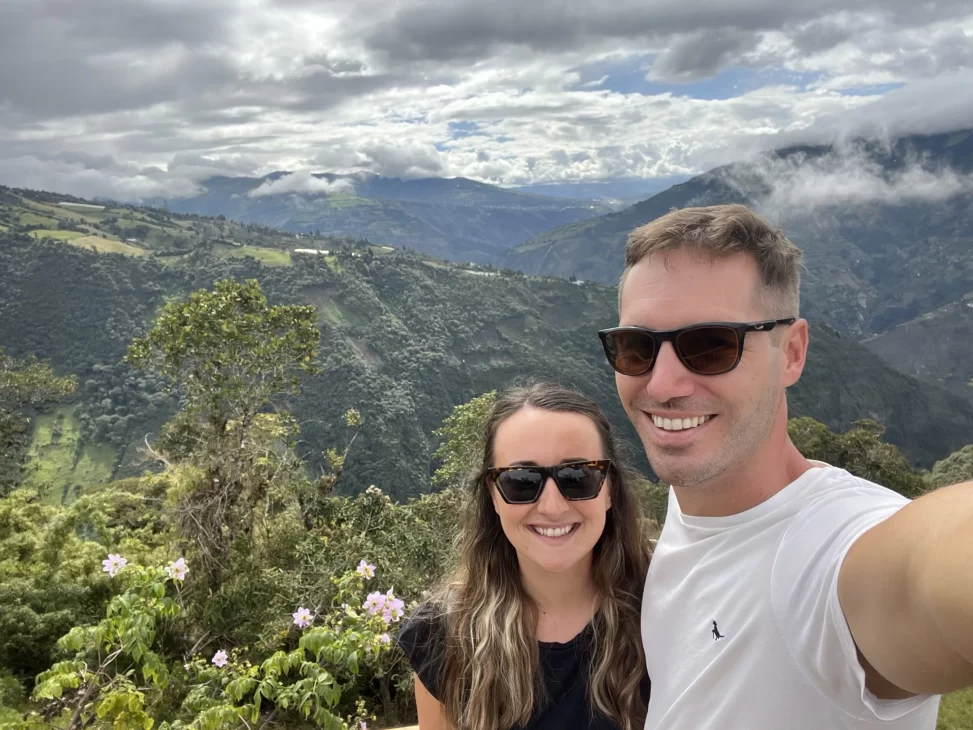
3. I wish I’d known about…being self-employed
Slightly different from the excitement of becoming a digital nomad is the reality of being a digital nomad. Because as a freelancer, you’re not just your boss, you’re also HR, payroll, IT support, and accounts payable, which means dealing with the reality of self-employed life. Hurray!
When you work for yourself, all the behind-the-scenes stuff that your employer used to sort out? That’s your job now.
- Taxes? You pay them (and file them).
- Time off? You fund it… No paid holidays here.
- Retirement planning? Yeah, that’s you, too. Rats.
You can add “admin city” to your list of destinations from now on.
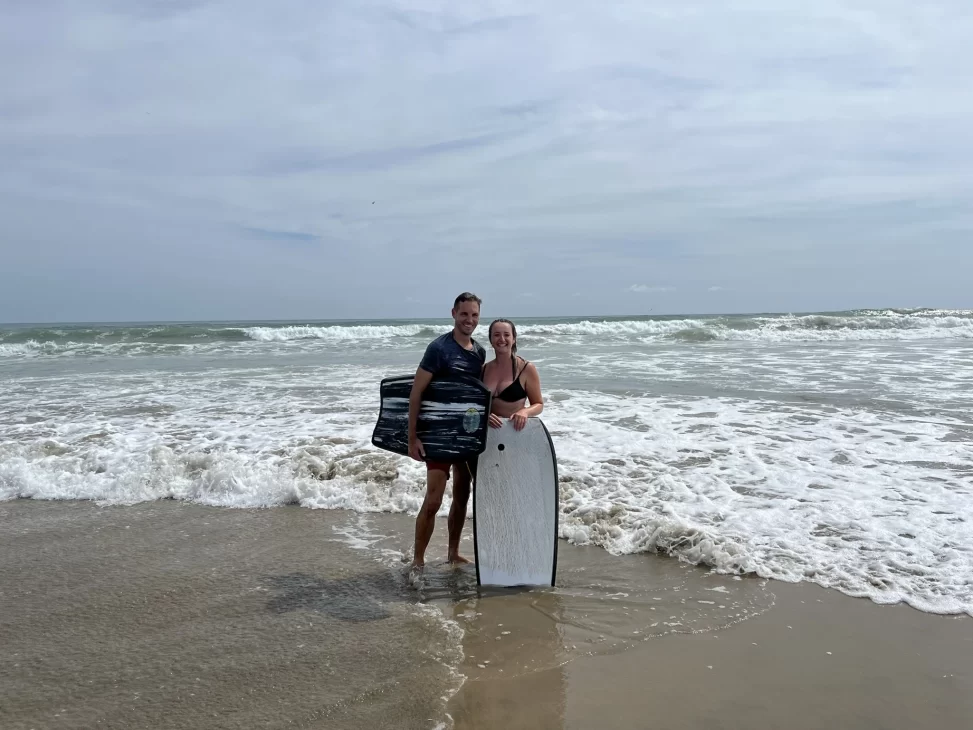
The financial minefield
Honestly, there’s so much to budget for when you’re travelling and working remotely and most of it falls into the “essential but eurgh” category:
- Flights and accommodation
- Emergency travel (like flying home last-minute)
- Healthcare, travel, and business insurance
- Coworking fees or equipment costs
- Visa costs or legal bits (depending on where you’re going)
Add in the fluctuating income of self-employment, and it’s a lot to stay on top of.
Enter: the spreadsheet
Now, I joke about it, but my spreadsheet is life. It tracks my income, my expenses, and my savings goals, and it keeps me on track.
Despite being a digital nomad for four years, it’s only in the last six months since properly using this spreadsheet that I’ve been able to live in the green and cover all my costs.
So yes, I may roll my eyes at it daily, but it works.
The lesson? Sort your admin early
The main thing I wish I’d known is that self-employed life needs structure, especially when you’re on the road. If you get your financial systems in place from the beginning, you’ll save yourself a whole lot of anxiety down the line.
- Use a spreadsheet, app, or budgeting tool you actually enjoy using
- Track income and expenses weekly (not when you remember, three months later)
- Set aside tax money the minute you get paid
- Know what you need to earn to stay afloat
It’s not the sexy part of digital nomad life, but it is the part that keeps you going.

4. I wish I’d known…the best places to go (and for how long)
You can’t just pack a bag and show up anywhere forever (sadly). Equally, not every city or country is well set up for working remotely.
Some places are stunning to visit, but have rubbish internet, expensive accommodation, or limited visa options.
For digital nomads just getting started, I recommend choosing a destination that’s already popular with other nomads. These places tend to have great internet, coworking spaces and cafes, affordable accommodation, nomad visas, and lots of like-minded people to connect with.
You might consider:
- Bansko, Bulgaria: Ski town turned summer nomad base (my favourite!). Read about it here.
- Bali, Indonesia: The original nomad hub (especially Canggu and Ubud)
- Chiang Mai, Thailand: Cheap, chilled, and full of cafés
- Medellín, Colombia: Vibrant, modern, and surprisingly affordable.
- Lisbon, Portugal: Europe’s sunny sweetheart with great food and surf
Things to consider
For UK travellers, since Brexit, the bane of my LIFE is the Schengen limitations. You can only spend 90 days in 180 in the WHOLE of the Schengen area (basically everywhere in Europe, excluding Cyprus).
For example, at the time of writing, I am in Cyprus. Why am I in Cyprus? Well, I just spent 90 days in Bulgaria, so Cyprus is the only place I can go inside of Europe for another 3 months. That, and there’s plenty of sunshine, mezze, beer, loads of cats, and my best friend from Uni lives here. But the point being that I can’t spend 2 months in Spain, then 2 months in Germany, for example.
Use a calculator and don’t be caught out. This is the one I use, just because it’s easy!
If you’re an EU citizen travelling in Europe, you’re laughing (and can wipe your hands of all this nonsense!).
For Australians, New Zealanders, Americans, and other non-EU travellers, you may also only get 90 days in the Schengen Zone, but double-check each country’s rules. Many popular digital nomad countries now offer specific digital nomad visas too (Portugal, Croatia, Estonia, and more), which can help you stay longer and legally work online (see Visa section below!).
Tax residency for nomads
If you’re already a digital nomad, you’ve likely had 100,000,000 conversations about tax. And everyone will have their 2 cents to throw in on this topic. Around 99.9% of the time, everyone’s opinions will contradict each other. Honestly, nomads love to discuss this topic, but it is SO complex and is entirely personal.
It’s tempting to just… wing it. But your home country might still want a slice of your income. It’s worth speaking to an accountant or tax advisor who understands international tax and nomad life, especially if you plan to be away long term.
My rule of thumb for when you are starting out is that, unless you plan on going somewhere for more than 6 months in any tax year, you will continue to pay tax in your home country. Until you can tell your home country that you’re a tax resident elsewhere, they will want your tax monies. Not to burst the bubble, but leaving home to be a digital nomad and being resident ‘nowhere’ doesn’t quite cut it for the tax man.
But my number 1 tip? Take everything you hear discussed over a few beers from other nomads with a pinch of salt!
Digital nomad visas
As the digital nomad scene has become more popular, more and more countries are offering digital nomad visas. This helps you circumvent the 90 in 180 rule if you want to spend more time in Europe.
Some also come with favorable tax incentives (see, I told you we love to talk tax!), but equally some require you to become tax resident (which you might not want to) if you spend over 180 days, so you also need to be hot on your timings in that regard too.
But generally, particularly because at some point (I know I did), you’ll become sick of moving around constantly, and may want to ‘base’ yourself somewhere. This is where nomad visas are great.
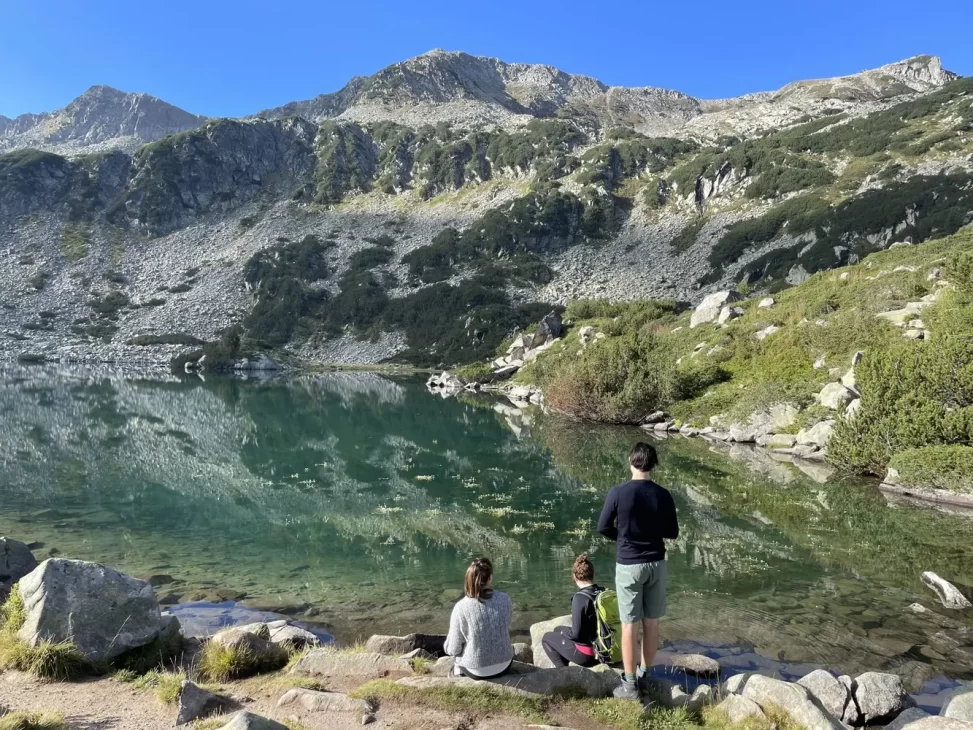
5. I wish I’d known…how much “the boring stuff” matters
It might be ‘boring’, but it’s what makes the lifestyle actually work. Things like tracking your money, setting up the right bank accounts, getting proper insurance, and making sure your phone works the second you land. This isn’t just admin, it’s what makes everything work.
While it might not be the most glamorous part of the adventure, having systems in place means fewer panics, smoother travel, and a lot more time to enjoy the good bits.
Freelance finances
When you’re working freelance, running your own business, or juggling multiple clients/gigs, the money can come in waves. Some months are amazing. Others…not so much.
And when you’re travelling, unexpected (or in my case, things that I absolutely should have expected, but are still somehow unexpected when they leave my account) pop up all the time. So here’s what I recommend you do:
Track your income and spending
The one thing I couldn’t live without now is my trusty spreadsheet. It covers everything, tax payments, UK national insurance, savings, rent, everyday expenses, even gifts. It looks pretty intense, but it reassures me that everything is covered. It tells me my baseline and where I want to be.
It’s something I never did before I was a freelancer. I was paid my income and spent it as I liked, maybe putting some away for savings, but beyond that, I had no plan.
Now, I plan for everything. It gives me peace of mind, but also sets goals (and boundaries!). There are so many more things to think of, flights, insurance, transfers etc, that together, can become quite a big sum. And you don’t want that to snowball. A spreadsheet will be your friend now.
Bank accounts and cards
Another thing we spend time researching is credit cards. Many will give you cashback, some give you airmiles, or points which can be converted into flights. Currently, we have an American Express Card which gives us Avios points. We then redeem this against British Airways flights, and we also get a companion voucher, which gives us a free ticket when we buy one, once per year.
Essentially, you want to figure out what you will find most useful and what you’d prefer. Many offer cashback at various retail outlets too.
Another thing you’ll need to think about, which is boring but important, is withdrawing cash. Not all countries are particularly card-friendly, but they will charge you through the nose to withdraw from an ATM. Your bank may also charge you a fee so you get screwed twice! It’s one thing that annoys me so much – being charged to withdraw my own money. Makes me cross!
But there are some banks that offer free withdrawals, and I’d recommend you get one. When we went to Thailand, where you’ll need cash on you all the time, and it can become very expensive to withdraw!
Travel insurance: Absolutely not optional
I know it’s not the sexiest topic, but it needs to be said. Insurance as a digital nomad is essential. Your usual holiday insurance won’t cut it when you’re spending months at a time out of your home country.
You’ll need proper long-term travel or nomad-specific insurance that covers things like health, tech, and all the wild activities you’ll inevitably say yes to.
And yes, you will need it. Aaron had his phone stolen in Colombia, we fell off a moped in Thailand (a story for another day), and we’ve both had illnesses that needed scans and medicine in random clinics with questionable waiting room décor.
Part of the digital nomad lifestyle is getting out of your comfort zone and doing fun (and terrifying) things. Like learning to dive (check!). Or kitesurf (if being dragged through the water counts as ‘learning’, then check!). Or saying yes to a waterfall hike that turns out to be a near-vertical mudslide. These things are incredible… but they’re also where things can go a bit pear-shaped.
We’ve seen the GoFundMe horror stories. Please don’t become one of them. Add insurance to your budget spreadsheet (see Point 5!) and get on with your adventures stress-free.
So what do I recommend? The one I would recommend is SafetyWing. It’s one of the only companies that offers insurance specifically designed for nomads, so you can be sure that everything you need will be covered. They offer two plans, Essential and Complete, and their website is easy to read and nothing is hidden from you, it’s just really straightforward.
If you want to know more about SafetyWing, head to their website and check it out.
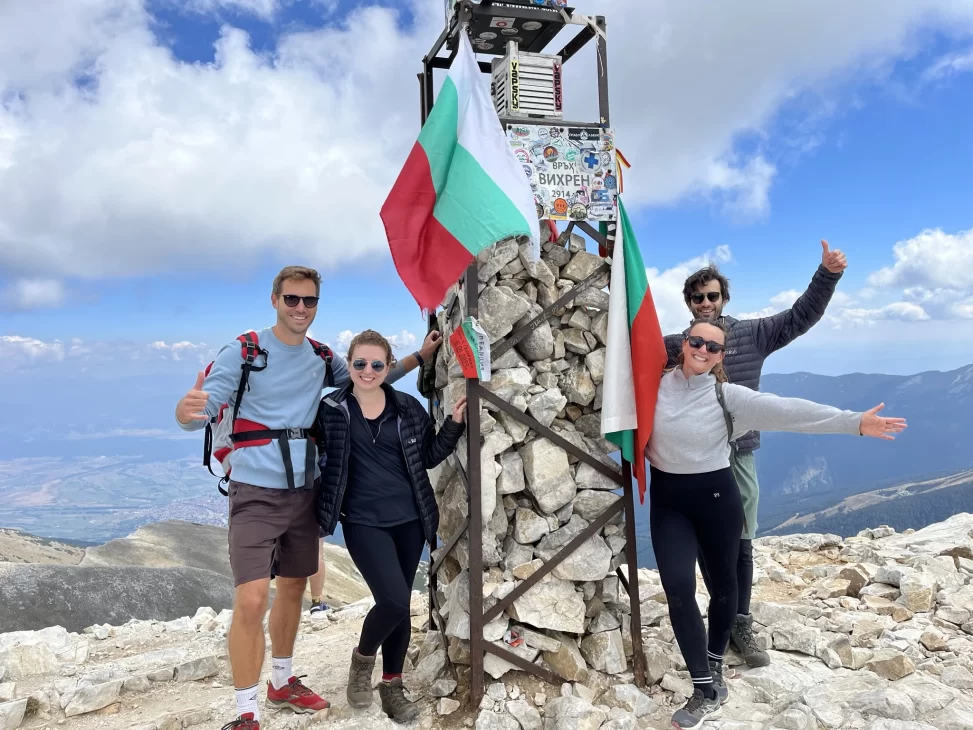
E-SIMs and phone data
Another thing which I use all the time now, but didn’t at the start, are e-Sims. I can’t believe I used to physically swap out SIM cards every time we landed in a new country. What a faff that was. E-sims are a total game-changer.
You keep your regular SIM installed, and just install a data plan digitally – no hunting for corner shops or wrestling with SIM trays on the airport floor. It’s super easy and you can install it before you get to your next destination so you can order an Uber from the airport.
My go-to options:
Airalo: Slightly pricier, but the coverage is excellent. I used this in the Dominican Republic and had no issues at all, even in the more remote areas. The app is also super intuitive.
MobiMatter: This is the one I use most often. It’s usually the most affordable, especially across Europe and the US. Great if you’re trying to keep things budget-friendly but still need reliable data.
6. I wish I’d known…the importance of great accommodation for digital nomads
Not all Airbnbs are created equal, even if they say that they’re ‘suitable for long-term stays’. No Airbnb, just because there is a kitchen table and chair, doesn’t mean it’s got a workspace.
Honestly, finding a place to live (not just stay) is trickier than it looks. I usually find that these flats haven’t been lived in, they’re all just holiday lets that people tick, ‘sure, you could stay here for 3 months’, but having given no thought to the practicalities.
The ones we were most excited for? Sometimes a letdown. The ones we were side-eyeing nervously? Surprisingly great. It’s a bit of a lucky dip. One that most of the time doesn’t feel very lucky when you’ve forked out $1,000 for what turns out to be a sub-par apartment.
Of course, your must-haves will be different to mine – maybe you need absolute silence to work, or maybe you can’t survive without a balcony for your morning coffee. Figure out your non-negotiables and stick to them.
You don’t need five-star luxury. But you do need a place where you can rest, work, cook, recharge, and not feel like you’re on a never-ending holiday. (Because you’re not. You live here now – at least for a bit.)
7. I wish I’d known…that WiFi isn’t a given (and it will fail you at the worst moment)
“This Airbnb says it has good WiFi!” Yes, but is it strong enough for Zoom? Does it drop out every 20 minutes? Is it powered by a potato?
Reliable internet is the single biggest thing that will make or break your ability to actually work and earn while travelling. And it is SO annoying when it’s just not good enough. And quite frankly, super stressful when you’ve booked to be there for 3 months.
Here are a couple of things I recommend to reduce the risk of being caught out by the dreaded buffer:
- ALWAYS ask for a screenshot of the Wifi speed from your accommodation host before booking
- Keep a local SIM with data as a backup (this was essential in Egypt and the Dominican Republic).
- Work from coworking spaces (and honestly, this will make you so much more productive/efficient too).
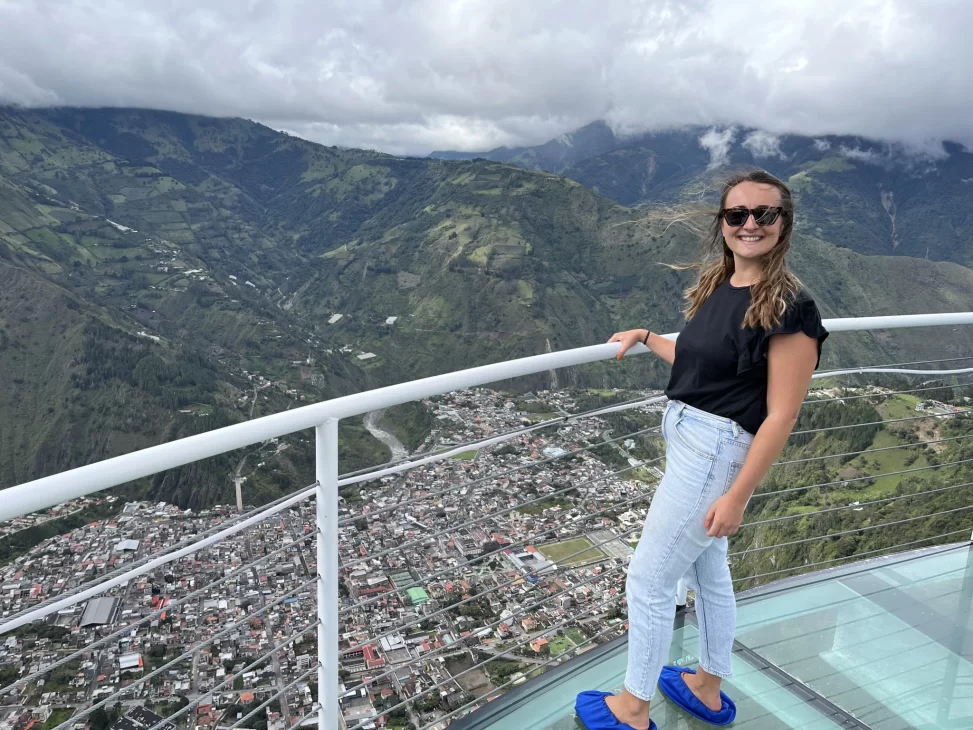
8. I wish I’d known…how I’d find my people
Ah! This is one of my favourite points! When we packed up and left the UK to begin our digital nomad adventure, I was nervous about leaving my family and friends. I thought I might be lonely or miss them too much. And while I DO miss them (of course, this is one of the downsides of digital nomadding), what no one tells you about is all the amazing people you’ll meet!
I have met some amazing people in the last 3 years, some who I hope will be friends forever.
But you have to make the effort. They say making friends as you get older is harder. I think this is compounded by being in a brand-new country. But the same rules apply, and you just need to be brave. The more you do it, the better it feels.
Here are a couple of my favourite ways to meet people:
Coworking spaces
Again, I had never heard of a coworking space before becoming a digital nomad. In our first destination, we didn’t join one, because we didn’t know they existed! And we didn’t meet anyone there (at least, no other nomads).
In our second destination, we got wise! We joined a coworking space and boom – social life unlocked! This is the main reason why I think coworking spaces are such great value for money. Yes, you pay for a decent desk space and great wifi, but it also covers community and companionship, something which is totally undervalued.
Like accommodation, not all coworking spaces are made equal. Check out my blog on what you should consider when looking for a decent coworking space.
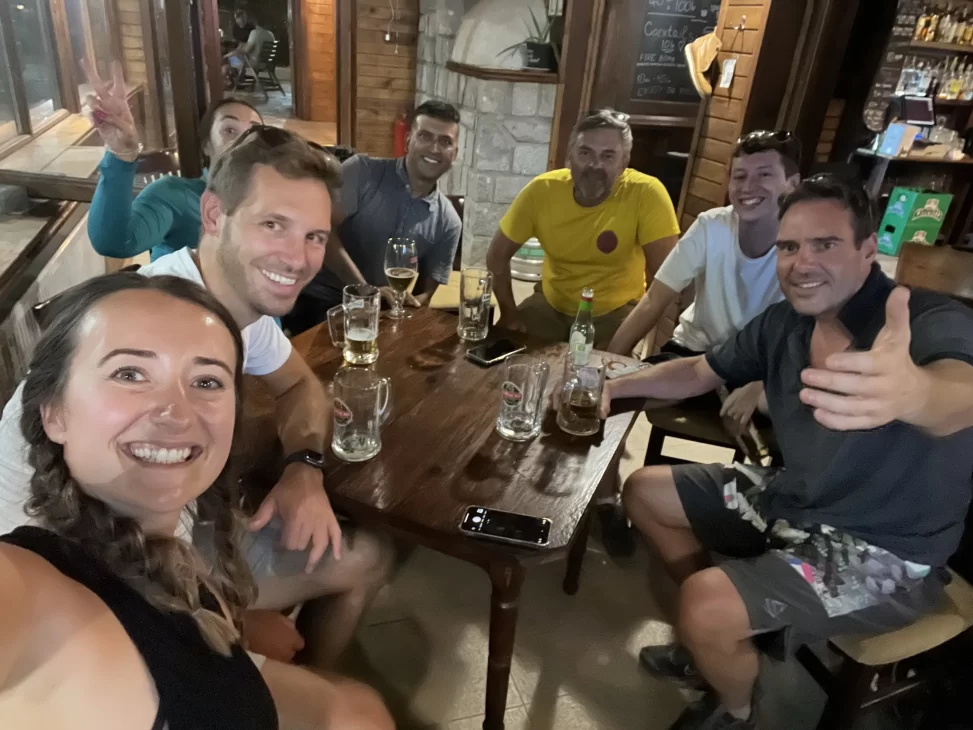
Learn new things
We’ve met some great people learning to dive, and it’s a real social sport. Why is it that all adventurous activities go hand in hand with beers? Maybe flip it. Want someone to go for beers with? Learn to dive!
Do the things you love
- Do the things you enjoy, and you’ll meet your people. Love the gym? Join one and go to classes.
- Check Facebook groups or use MeetUp and see what’s going on. For example, in Cape Tow,n the nomad community has set up a WhatsApp group where they post events and meetups.
Stay a bit longer
The longer you stay, the more likely it is that you’ll build real connections. You don’t tend to meet friends overnight, it takes time. This has definitely been the case for us.
9. I wish I’d known…the harsh realities of being a digital nomad
While most of the time, I think being a digital nomad is great. There are definite downsides, and it wouldn’t be right to leave these out. Here are a few to be prepared for (but don’t let them put you off!):
Isolation
Leaving behind your friends and family can be lonely, especially if you’re moving around a lot and are a solo traveller. But it does get easier, and making new connections becomes second nature. But here are a couple of things that really packed more of a sting for me.
Timezones are a bitch
Not only just for working (in Bali, my working hours for a particular contract were 5pm – 10pm. Eurgh!) but for keeping in touch. When people are at work, you might be asleep, then when you get up, people are going to bed. There is limited time for connection back home. Luckily, this one is totally avoidable and if it bothers you, you can stick closer to home.
Missing out on milestones back home
Ah, this is a big one. Especially as you hit your 30s. I’ve missed 30th birthdays, my best friends are having babies and getting married, and you have to accept that you’re going to miss out on a bit of that – and that flying home for everything just isn’t financially viable. The tradeoff is that life looks pretty good the rest of the year, but it can feel a bit sad.
10. I wish I’d known about…the mindset changes
You’ll grow a lot as a person, and it’s not always comfortable. There are so many little mindset shifts that sneak up on you as a digital nomad, and they can catch you off guard if you’re not expecting them. Here are just a few…
You might feel guilty
This was unexpected. I thought I’d feel free and excited all the time.
But I sometimes feel guilty for not working enough, or for not enjoying the lifestyle enough, or for being able to live like this while my friends and family are back home dealing with trains and offices and bills.
It’s okay. You’re allowed to feel those things. It doesn’t mean you made the wrong choice – it’s totally normal.
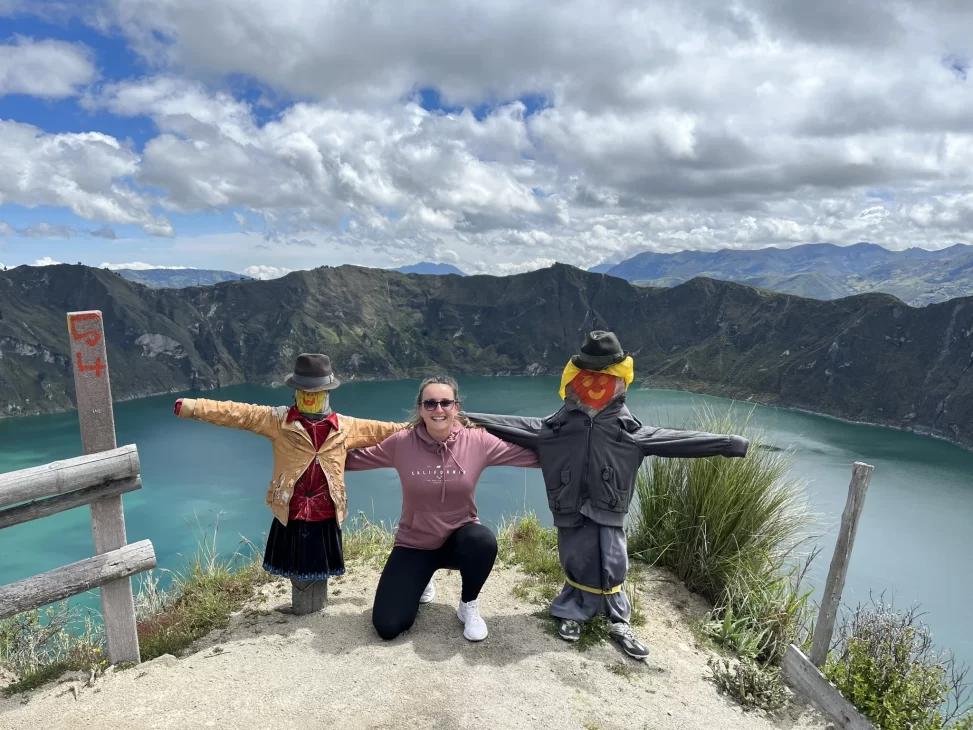
Selling yourself and finding confidence
I’ve never really been a confident person. Outwardly, maybe I can appear to have it together, but behind the scenes…I question everything. Every email I send, every piece of work I deliver, every message I maybe should’ve worded differently. Seriously, I’ll still kick myself over “mistakes” made years ago. I can spiral over a rogue exclamation mark.
But here’s the thing: when you step into the digital nomad lifestyle, you have to find some level of confidence, or at the very least, get really good at faking it.
Confidence becomes less of a “nice-to-have” and more of a survival skill. You need it to meet people. You need it to find work. You need it to chase opportunities, pitch clients, set boundaries, and trust that you’re not a complete imposter (even if your brain likes to say otherwise).
You have to believe you’re good at what you do, because you’re no longer sitting safely behind a company logo or a job title, with all the security that offers.
You’re the product now. You’re the brand. You’re the one showing up, selling your services, explaining your value, and deciding your rates.
And yes, it feels awkward at first. Like a weird rebrand of yourself where you’re trying to sound professional without cringing at your own LinkedIn bio. But over time, it gets easier.
You start collecting small wins, building a portfolio, getting lovely feedback from clients and slowly but surely, that self-doubt voice gets a little quieter (or at least it talks less…).
So if you’re starting this journey and you feel like you’re just winging it – guess what? So is everyone else. The trick is to back yourself. Speak about your work with pride.
And if all else fails, remember: confidence is just enthusiasm without the apologies.
Freedom vs stability
One of the biggest mindset shifts I had to make as a digital nomad was understanding that freedom doesn’t mean chaos. I used to think I’d wake up slow, grab a coffee, maybe do a few emails… see how the day unfolds.
Turns out, that kind of “go with the flow” lifestyle isn’t super compatible with being productive (or earning much cash!) – especially when you’ve got multiple clients and actual deadlines. Who knew?
The truth is, structure is your friend. You need some level of routine to make this lifestyle sustainable. Not rigid, boring structure. But enough of a rhythm that your brain knows when it’s in “work mode” and when it’s not.
For me, a good day usually starts with the gym or a walk to get coffee, followed by a focused few hours of work before lunch. A bit more in the afternoon (depending on how much I have on), then I switch off. It’s nothing revolutionary, but having that flow has been a game-changer.
Protect your time (and sanity!)
Something I really wish I’d known early on? How important it is to set boundaries. As a digital nomad, the lines between work and life blur fast. You’re always online, always planning the next destination, juggling clients across different time zones – and somehow trying to enjoy your surroundings too.
It’s a recipe for burnout, even if you’re not working full time.
You’re not just dealing with one inbox anymore. It’s Slack here, WhatsApp there, a random Teams call popping up during what was supposed to be your beach afternoon. It’s a lot.
So, here’s what I’ve learned:
- Block your calls.
- Block your calendar.
- Don’t be available 24/7.
More importantly, don’t feel guilty about it. We’ve all fallen into the trap of being too available, saying yes to every request, and pushing our own needs to the bottom of the pile. But you’re not an employee anymore. You’re a business owner. You control your schedule. You get to decide how and when you work.
It’s okay to push back. If a client needs something and it doesn’t fit your workload – or you’ve got a volcano hike booked that morning – just say so (politely, of course). You don’t need to justify every minute of your time. Unless you really need the cash… in which case, fair play. Been there too.
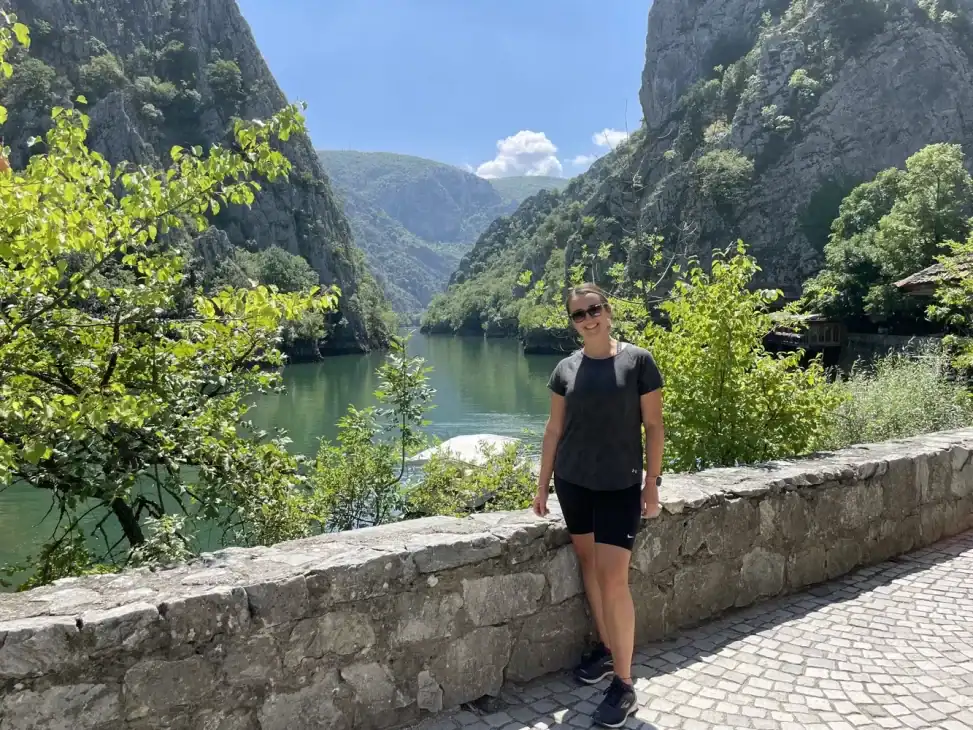
BONUS POINT: I wish I’d…focused more on being a tourist!
One of the absolute best parts of being a digital nomad? You’re constantly somewhere new. And that’s not just a perk- it’s kind of the whole point. So enjoy it! Be curious. Explore. Say yes to things. Because before you know it, you’ll be packing up and heading to the next spot, wondering where the time went.
Whenever we land somewhere new, one of the first things we do is go on a walking tour – or hop on one of those slightly cringeworthy but actually amazing open-top bus tours (one of the best things I did in Cape Town, just FYI!).
Why? Because local guides are full of brilliant tips you won’t find on Google. It’s also a great way to get your bearings, hear a bit of the history, and spot places you want to come back to later.
Top tip… Don’t wait until the end of your trip to do this. That’s when you hear about the best local bakery or secret beach and realise… you’re leaving tomorrow. Gutting.
Whether you’re more into museums and markets, or sunsets and street food, it helps to have a little list of spots lined up. That’s where my travel guides come in. They’re packed with ideas, practical info, and some honest takes on what’s worth your time (and what isn’t). Sometimes the best place to start planning is by asking yourself: where do I actually want to go?
This lifestyle is about freedom and flexibility, but also about being present. Take time off the laptop, get out of your Airbnb, and soak up the city/island/town…you can always answer that email tomorrow. Or at least after your ice cream.
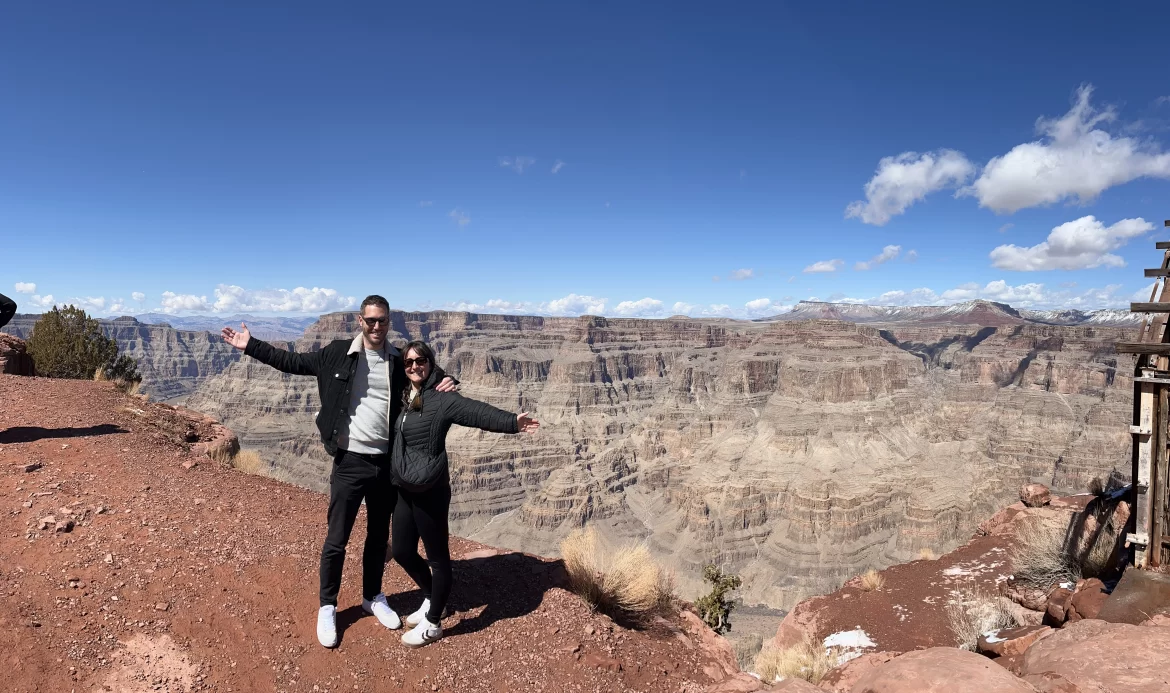
FAQ: Starting Your Digital Nomad Journey
So, to sum up…
I hope this gives you a more realistic picture of what the digital nomad lifestyle is really like. Yes, it’s awesome, but it’s also a lot of work and can have its downsides. It’s swings and roundabouts – but when it’s good, it’s SO good. If you’re thinking about making the leap, just be prepared for the highs and lows.
But one thing to remember: You can always go home. You can always change your mind. Life will still be there at home. But you’ll regret it if you don’t try.
Have any other tips or things you wish you’d known? Drop them in the comments, I’d love to hear from you!


